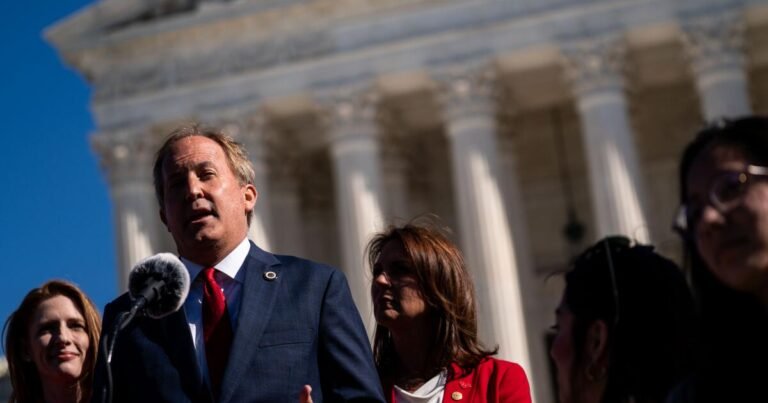WASHINGTON — Citing the explosion of on-line porn, the Supreme Court docket dominated Friday that states might implement age verification legal guidelines in hopes of screening out youngsters and younger teenagers.
By a 6-3 vote, the justices rejected a free-speech claim from the grownup leisure trade.
“The ability to require age verification is inside a State’s authority to forestall youngsters from accessing sexually specific content material,” mentioned Justice Clarence Thomas for the court docket.
The free-speech advocates who challenged the legislation mentioned it will infringe the rights of adults as a result of they might be pressured to reveal their identification.
However the court docket disagreed.
The Texas legislation “advances the State’s necessary curiosity in shielding youngsters from sexually specific content material. And, it’s appropriately tailor-made as a result of it permits customers to confirm their ages via the established strategies of offering government-issued identification and sharing transactional information,” Thomas mentioned.
The court docket’s three liberals dissented.
Beneath the Texas legislation, an internet site should use “cheap age verification strategies” to verify guests are at the least 18 years outdated if greater than one-third of its content material is “sexual materials dangerous to minors.”
Greater than 21 different Republican-led states have adopted related legal guidelines lately.
In protection of the Texas legislation, Atty. Gen. Ken Paxton mentioned that previous to the web, the court docket had upheld legal guidelines that required bookstores or journal stands to “verify the age of their clients earlier than promoting them pornography.”
He argued that transferring their enterprise on-line mustn’t give pornographers a 1st Modification proper “to offer entry to almost inexhaustible quantities of obscenity to any little one with a smartphone.”
State officers additionally mentioned porn on-line is more and more violent and degrading.
“The common little one is uncovered to web pornography whereas nonetheless in elementary college,” wrote state attorneys for Ohio and Indiana. “Pornography web sites obtain extra visitors within the U.S. than social media platforms Instagram, TikTok, Netflix, and Pinterest mixed.”

